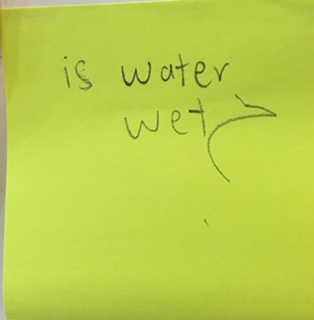Is Water Wet

The question of whether water is wet might initially seem like a trivial and straightforward inquiry, but delve deeper, and you’ll find yourself embroiled in a fascinating debate that touches upon linguistics, perception, and the very nature of water itself. At its core, this seemingly simple question challenges us to reconsider our understanding of wetness and how we apply it to the most abundant substance on Earth. So, let’s embark on a journey to explore the nuances of this age-old question and unravel the mystery: Is water wet?
Table of Contents
ToggleDefining Wetness:
Before delving into the debate, it’s crucial to establish what we mean by “wet.” Wetness is commonly understood as the state of being covered or saturated with liquid, typically water. It’s a sensory experience, often associated with the feeling of moisture on our skin or the presence of water droplets on surfaces. However, this definition raises an important question: can a substance be considered wet if it is the source of wetness itself?
The Linguistic Debate:
One of the primary hurdles in answering the question lies in the ambiguity of language. Language serves as a tool for communication, but it can also obscure understanding when confronted with abstract concepts. The debate over whether water is wet often hinges on how we interpret and apply language to the physical world.
Those arguing that water is wet often rely on a straightforward interpretation of the word “wet.” According to this viewpoint, if something is capable of making other objects wet, then it must be wet itself. Water, by its very nature, has the ability to adhere to surfaces and impart a sense of wetness. Therefore, it follows that water itself is wet.
On the other hand, detractors point to the inherent properties of water to challenge this assertion. They argue that water, as a liquid, cannot be wet in the same way that solid objects can. Instead, they propose that wetness is a sensation caused by the interaction between water and other surfaces. In this view, water is the agent of wetness rather than being wet itself.
The Scientific Perspective:
Turning to science, we can gain further insights into the nature of water and its relationship to wetness. At the molecular level, water exhibits unique properties that contribute to its ability to wet surfaces. Water molecules are polar, meaning they have a positive and negative end, which allows them to form hydrogen bonds with other molecules. This property enables water to adhere to surfaces and spread out, creating the sensation of wetness.
However, the scientific perspective does not provide a definitive answer to the question of whether water is wet. Instead, it offers a framework for understanding how water interacts with other substances to create the sensation of wetness. From this viewpoint, water itself is not inherently wet but rather has the ability to cause other objects to become wet.
Philosophical Considerations:
Beyond the realms of language and science, the question of whether water is wet raises philosophical considerations about the nature of reality and perception. Philosophers have long grappled with questions of existence and how we come to know the world around us.
In the case of water, our perception of wetness is influenced by our sensory experiences. When we come into contact with water, we feel its coolness and moisture, leading us to describe it as wet. However, this perception is subjective and can vary depending on individual experiences and cultural influences.
Furthermore, the question challenges us to reconsider our understanding of the properties of substances. Is wetness an intrinsic quality of water, or is it a relational concept that emerges from its interactions with other substances? These philosophical inquiries remind us that our understanding of the world is shaped by more than just empirical observations; it is also influenced by language, culture, and perception.
Conclusion:
In the end, the question of whether water is wet remains a matter of interpretation, perspective, and philosophical inquiry. While language and science offer insights into the nature of water and wetness, they do not provide a definitive answer. Instead, the debate invites us to reconsider our understanding of fundamental concepts and challenges us to explore the complexities of the world around us.
Perhaps the true essence of the question lies not in seeking a conclusive answer but in embracing the uncertainty and ambiguity that characterize our interactions with the world. Whether water is wet or not may ultimately depend on how we choose to define and interpret the concept of wetness. As we continue to ponder this age-old riddle, we are reminded of the richness and complexity of the natural world and the boundless mysteries that await our exploration





